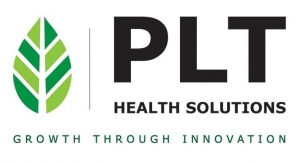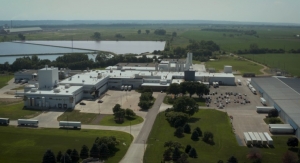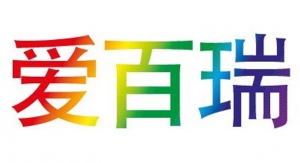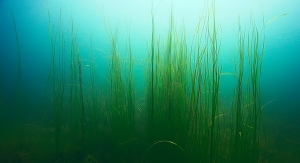07.30.19
PLT Health Solutions will begin offering a grade of the ingredient RhodioLife Rhodiola rosea to the U.S. market that is certified for sports through the Banned Substances Control Group (BSCG). PLT claimed this launch represents the first sports-certified Rhodiola available in the country.
PLT manufacturing partner Nektium Pharma (Las Palmas, Spain) has established an ongoing program with BSCG to test and certify materials sold as Sports Grade. The testing program covers 483 drugs in total, including 272 drugs that are banned by a broad range of sports organizations.
The BSCG certification comes on top of a third-party ingredient identity verification testing program completed on Rhodiolife in 2017 after global shortages of the material called into question the possibility of adulterated supplies of the material. Rhodiola rosea has been marketed as support for sustained energy, physical performance and an increased capacity to handle stress and support mood. Today, Nektium and PLT maintain a steady supply of Rhodiola rosea sustainably harvested and sourced from Russia’s Altai Mountains.
According to Devin Stagg, COO of PLT Health Solutions, ingredient integrity, sustainability and a ready supply of Rhodiola rosea are key features of the Rhodiolife ingredient offering. “RhodioLife’s unique ‘fingerprint’ composition consistently provides the spectrum of compounds found in the root of the plant that is responsible for its biological activity—including rosavin, rosarin, rosin, and salidroside. With RhodioLife, not only is the percentage of the primary actives—rosavin and salidroside—the same as the root, but so is the ratio of actives. This is not the case with many other Rhodiola rosea ingredients on the market,” he said. “This new Certified Sports Grade is another way we are responding to the need for trustable transparency, particularly for companies that market into the active and sports nutrition market.”
Nearly Four Decades of Sports Testing
The founder of BCSG, Don H. Catlin, MD, established the first anti-doping laboratory in the U.S. in 1982, establishing testing methods and approaches that remain the Olympic benchmarks today. BCSG was founded in 2004 to address the needs for the supplements industry. The group practices method detection levels in the parts per billion (ppb or ng/g) that are essential for athletes to avoid the chance for positive drug tests.
Ingredient Integrity
Traditionally grown and consumed in North Asia and Russia, the R. rosea species is often confused with other Rhodiola species in global dietary and herbal supplement markets. True R. rosea is believed to be differentiated from other Rhodiola species by its yellow flowers, and presence of consistent levels of rosavins in the root extracts. For RhodioLife, responsible wildcrafting and sustainable sourcing is managed by a single entity and collection point, in the Altai Mountains, on the border of Russia, Mongolia, Kazakhstan and China. A Collection Management Plan (CMP), in accordance with WHO Good Agricultural and Collection Practices (GACP), is used to ensure responsible harvesting of material. This plan includes requirements for replanting, harvesting of mature plants, and ensures fair prices, safety and training for workers.
According to Rima Patel, director of quality for PLT, the independent verification conducted by BSCG on RhodioLife is in line with the company’s PLT360 transparency and trust building initiative that was introduced in 2015. “PLT360 is a business-wide commitment by PLT Health Solutions to developing ingredients that our customers can be both confident and proud to supply to their own customers—knowing that these ingredients are safe, of high quality, efficacious and harvested and manufactured in a sustainable way,” she said. “Going beyond traditional quality control programs, PLT360 examines every aspect of an ingredient that we supply to deliver a best-in-class solution in a program that tracks ingredient integrity, quality, sustainability, and efficacy,” she added.
PLT manufacturing partner Nektium Pharma (Las Palmas, Spain) has established an ongoing program with BSCG to test and certify materials sold as Sports Grade. The testing program covers 483 drugs in total, including 272 drugs that are banned by a broad range of sports organizations.
The BSCG certification comes on top of a third-party ingredient identity verification testing program completed on Rhodiolife in 2017 after global shortages of the material called into question the possibility of adulterated supplies of the material. Rhodiola rosea has been marketed as support for sustained energy, physical performance and an increased capacity to handle stress and support mood. Today, Nektium and PLT maintain a steady supply of Rhodiola rosea sustainably harvested and sourced from Russia’s Altai Mountains.
According to Devin Stagg, COO of PLT Health Solutions, ingredient integrity, sustainability and a ready supply of Rhodiola rosea are key features of the Rhodiolife ingredient offering. “RhodioLife’s unique ‘fingerprint’ composition consistently provides the spectrum of compounds found in the root of the plant that is responsible for its biological activity—including rosavin, rosarin, rosin, and salidroside. With RhodioLife, not only is the percentage of the primary actives—rosavin and salidroside—the same as the root, but so is the ratio of actives. This is not the case with many other Rhodiola rosea ingredients on the market,” he said. “This new Certified Sports Grade is another way we are responding to the need for trustable transparency, particularly for companies that market into the active and sports nutrition market.”
Nearly Four Decades of Sports Testing
The founder of BCSG, Don H. Catlin, MD, established the first anti-doping laboratory in the U.S. in 1982, establishing testing methods and approaches that remain the Olympic benchmarks today. BCSG was founded in 2004 to address the needs for the supplements industry. The group practices method detection levels in the parts per billion (ppb or ng/g) that are essential for athletes to avoid the chance for positive drug tests.
Ingredient Integrity
Traditionally grown and consumed in North Asia and Russia, the R. rosea species is often confused with other Rhodiola species in global dietary and herbal supplement markets. True R. rosea is believed to be differentiated from other Rhodiola species by its yellow flowers, and presence of consistent levels of rosavins in the root extracts. For RhodioLife, responsible wildcrafting and sustainable sourcing is managed by a single entity and collection point, in the Altai Mountains, on the border of Russia, Mongolia, Kazakhstan and China. A Collection Management Plan (CMP), in accordance with WHO Good Agricultural and Collection Practices (GACP), is used to ensure responsible harvesting of material. This plan includes requirements for replanting, harvesting of mature plants, and ensures fair prices, safety and training for workers.
According to Rima Patel, director of quality for PLT, the independent verification conducted by BSCG on RhodioLife is in line with the company’s PLT360 transparency and trust building initiative that was introduced in 2015. “PLT360 is a business-wide commitment by PLT Health Solutions to developing ingredients that our customers can be both confident and proud to supply to their own customers—knowing that these ingredients are safe, of high quality, efficacious and harvested and manufactured in a sustainable way,” she said. “Going beyond traditional quality control programs, PLT360 examines every aspect of an ingredient that we supply to deliver a best-in-class solution in a program that tracks ingredient integrity, quality, sustainability, and efficacy,” she added.






















